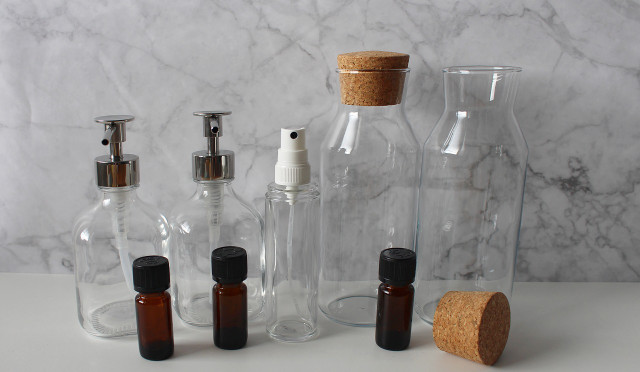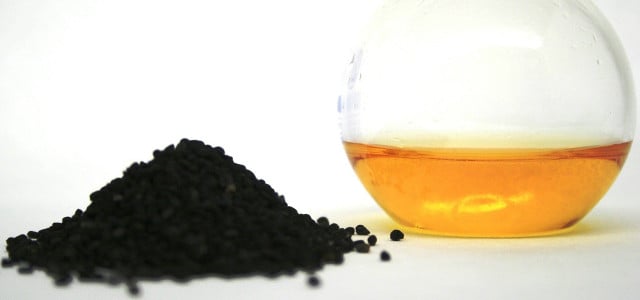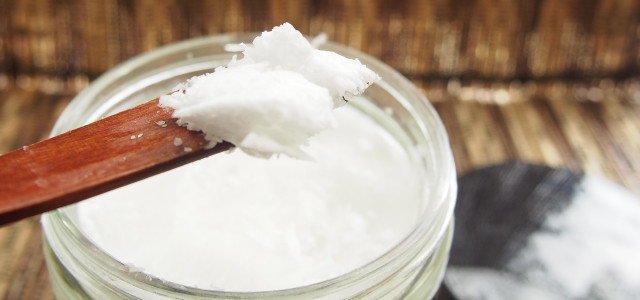Clove essential oil benefits have been harnessed by humans for hundreds of years to treat a myriad of health problems and conditions. Today, we cast our sights on the supposed healing properties of clove oil and how you can implement them at home.
Spicy, warm, and woody with just a slight hint of leather: clove essential oil comes from the evergreen clove tree, Syzgium aromaticum, which is native to Indonesia’s famed Spice Islands. By refining the buds and blossoms from the tree, clove oil is produced. It’s sold across the globe due to its popularity in aromatherapy and its surprising usefulness in the household.
Additionally, clove essential oil benefits have often been used to relieve dental pain, ease digestion, treat infections, and for a whole host of other health problems. Before you rush out to the store however, we’d like to first paint you a fuller picture of both clove oil’s benefits and side effects so that you can decide for yourself.
Clove Essential Oil Benefits

(Foto: CC0 / Pixabay / nir_design)
Not only does clove oil give an invigorating scent when it’s diffused, but the range of potential clove essential benefits is also quite extensive. Its reported health benefits are as follows:
- A pain reliever for toothaches and muscle pains – Applying clove oil to swollen areas can help reduce swelling and painful irritation of teeth and muscles on the outer body due to its anti-inflammatory qualities
- Antimicrobial properties – Using clove essential oil helps kill bacteria. Therefore, it can be used (in its diluted form) to treat insect bites, stings, wounds, cuts, bruises, and fungal infections.
- Boosts blood circulation – clove oil can help arteries dilate in turn reducing blood pressure.
- Digestive aid – clove oil can generally improve digestive help and protect the digestive tract.
- Insect Repellent – with a very potent aroma, a few drops on bedsheets or dirty laundry are sure to keep creepy crawlies at bay.
The list of benefits of clove essential oil is long – but how can one remedy treat so many different ailments? The answer lies in a chemical compound that makes up most of clove oil’s makeup, eugenol. Eugenol is a type of natural anesthetic that contains both antiseptic and anti-inflammatory properties.
Nevertheless, we advise exercising caution when using substances containing eugenol: it can be harmful to the liver when consumed in high quantities or not properly diluted, which paves the way for our next topic.
Clove Essential Oil Side-Effects
As you may well know, there are always two sides to every story. As such, there are several clove essential oil side-effects that you should consider before using the oil at home. These include:
- Skin irritation – clove oil may irritate some skin types. To test this, apply a light amount of diluted clove oil to your skin. If there’s swelling, redness, burning, or itching, you should not be using this remedy.
- Allergic reaction – it’s possible to have an allergic reaction to clove oil or the eugenol within it if consumed in excessive amounts, although it’s less common. Signs of this include skin irritation, difficulty in breathing, or coughing, and wheezing. Be vigilant for reactionary signs of anaphylaxis.
- Intestinal issues – not only does it taste horrible, ingesting clove oil can cause an upset stomach, cramping, or diarrhea. It can also negatively impact helpful intestinal bacteria
- Blood Thinning – individuals suffering from bleeding disorders or taking blood-thinning medications should avoid using clove essential oil, as eugenol can increase bleeding.
As a result of all of these side effects, we recommend avoiding clove essential oil if you’re…
- pregnant
- taking blood-thinning medications
- about to undergo major surgery or dental procedures
- suffering from a bleeding disorder, such as hemophilia
While it may seem that the clove essential oil benefits for toothaches are widely established, don’t forget that clove oil is not widely recommended by the larger medical community, and as such you should always be careful when using it. We also recommend that you don’t give undiluted clove oil to your children.
Always remember to dilute your clove essential oil with more neutral, organic carrier oils to make it more tolerable for your skin and body. If symptoms persist, or if you have any concerns about it all, don’t hesitate to talk to a doctor.
How to Use and Benefit From Clove Essential Oil: 5 Tips



(Foto: CC0 / Pixabay / Monfocus)
When the time comes to reap these clove essential oil benefits, there are several ways that you can enjoy this stimulating oil to enhance your home life. We’d now like to list them and give you some suggestions:
1. Topical
If you wish to apply clove oil as a massage oil, make sure to dilute it first with a carrier oil or unscented lotion, such as coconut or aloe vera gel.
As clove oil is known as a ‘hot oil’, its direct application can irritate your skin. By diluting clove and carrier oils, you can make a lotion or cream that can be massaged onto the body to treat pain and ease itching. For sensitive skin, be sure to use a weaker ratio of clove oil.
2. Sprays
You can easily make a homemade air freshener that will spread this delightful aroma around your home. It’s very simple, here are the steps you can take:
- Add a teaspoon of salt to a spray bottle, along with several drops of clove essential oil or with another type if you feel like mixing it up.
- Add a ¼ cup of water to the bottle and shake it thoroughly before spraying.
- Your new essential oil air freshener is ready to go.
3. Diffusion
Combining clove essential oil with a diffuser is an easy way to enhance the coziness of a room through aromatherapy.
4. Dental Care
Perhaps the most famous benefit: if you have a toothache, clove essential oil can act as a temporary anti-inflammatory, numbing agent until you’re able to see a dentist. To treat a toothache with clove oil:
- Soak a clean cotton ball in a solution of clove oil and an edible carrier oil (like olive or coconut).
- Gently dab the cotton ball at the source of the pain.
- Be careful to avoid contact with the gums. Wait a few moments for relief.
- Repeat every few hours as necessary.
5. Soothing Mouthwash
Clove essential oil is also part of one of our two homemade clove mouthwash recipes.
Buying Clove Essential Oil: What to Look Out For
Although many brands will label their products as ‘natural’, there are several tips and tip-offs that can help you separate the wheat from the chaff. To find the highest quality clove essential oil with relative ease, follow our tips below:
- Check for a purity statement – Any clove essential oil that’s worth its salt should proudly display this figure on its label. Try to buy 100% purity if at all possible. If it’s less, check the label for other ingredients.
- If in doubt, ask your snout – Clove essential oil has a powerful, unforgettable and spicy scent that stands out. If you can try it before buying the bottle, check for this unique aroma.
- Check the bottle for bold claims – Unfortunately, essential oils don’t fall under the jurisdiction of the FDA. Therefore, be wary of any clove oil bottles that make grandiose claims of being able to cure you. These are just bold marketing ploys by some brands.
- Is the oil in a dark glass bottle? – Although sometimes colorless, essential oils can be damaged by constant exposure to light. Therefore any worthwhile clove oil should be packaged in dark glass.
- Check for the Latin name – While this option is sure to leave you feeling the most pleased with yourself for knowing some fancy words, it’s worth noting that clove essential oil brands of merit should say Syzgium aromaticum or Eugenia cariphylata on the product label.
Where to Buy Essential Oil
We hope that this article has been illuminating for you and that you can reap the clove essential oil benefits in no time. Fortunately, clove oil can be found online from many eco-conscientious retailers, or in the aisles of many health or natural food stores across the nation. Typically, the best place to begin your hunt is the pharmaceutical section of any store.
It’s quite likely that clove oil can be found near the vitamins, tubes of toothpaste, and other dental hygiene product sections. Failing that, you can probably find clove essential oil in the beauty, self-care, or health aisles situated right next to the rest of the essential oils. Best of luck!
Read more:
- Home Remedies for Flies: How to Get Rid of House Flies
- DIY Mouthwash: Oral Hygiene with Natural Ingredients
- 7 Natural Remedies for Sore Throats: How to Relieve Throat Pain
- Rose Water for Skin: Benefits and How to Use It
Important Information regarding Health-related Topics.
** Links to retailers marked with ** or underlined orange are partially partner links: If you buy here, you actively support Utopia.org, because we will receive a small part of the sales proceeds. More info.Do you like this post?









